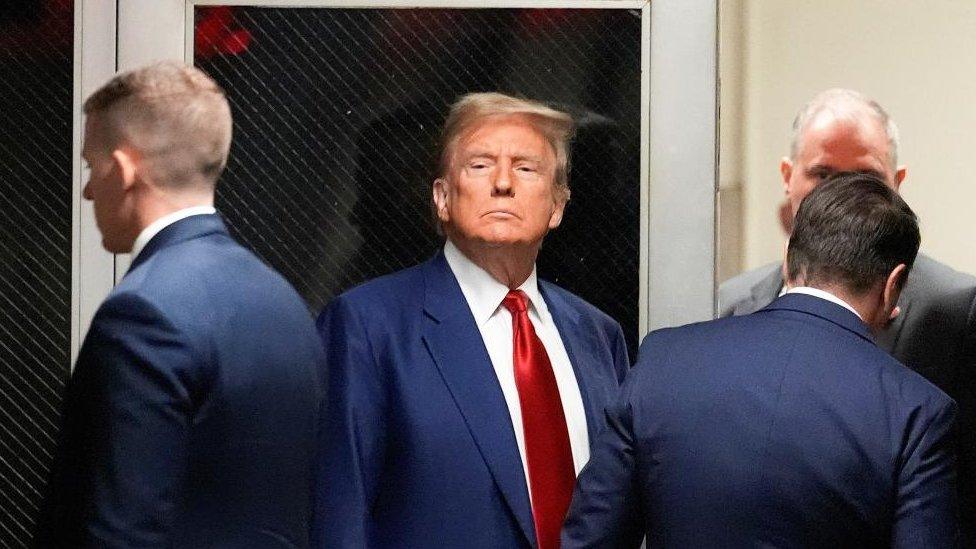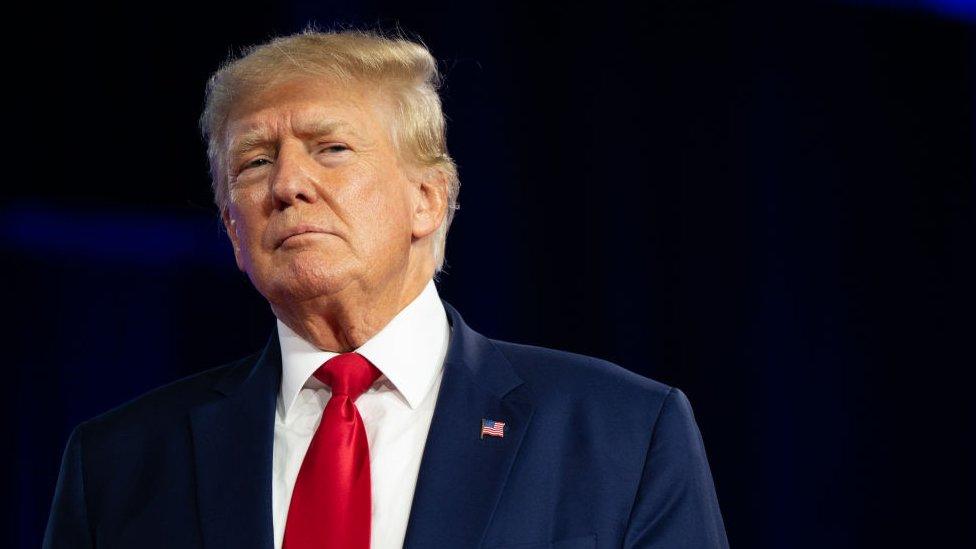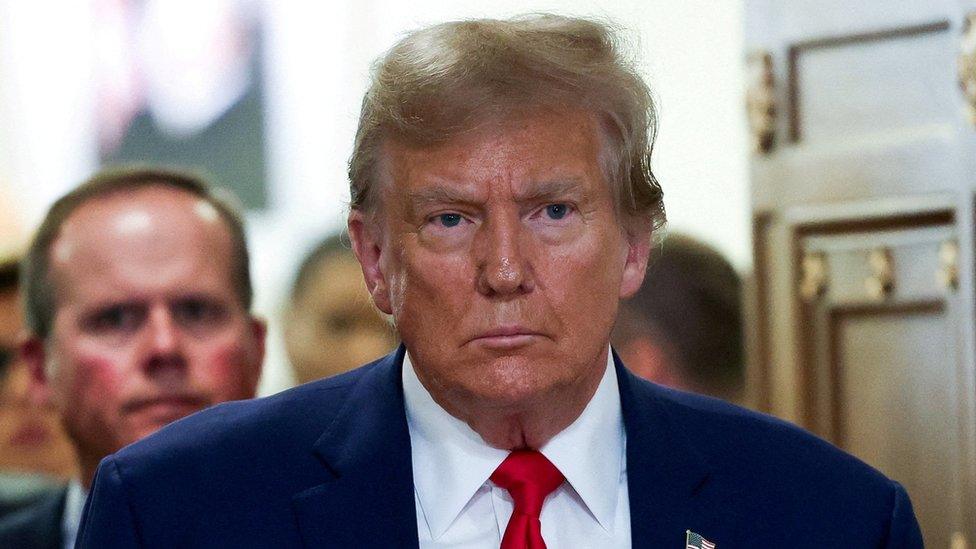Donald Trump's hush-money trial to begin 15 April
- Published

Donald Trump will face the first ever criminal trial of a former US president on 15 April over alleged hush money payments to adult film star Stormy Daniels.
Justice Juan Merchan denied the defence's request to delay the case.
Mr Trump faces four criminal cases, but this may be the only one to make it to a courtroom before November's election.
He has pleaded not guilty to all 34 felony charges, arguing the claims do not constitute "a crime".
After spending much of Monday morning sitting next to his attorneys inside the courtroom, Mr Trump told reporters that the case should be considered "election interference".
"It's a disgrace, and we will obviously be appealing," he said. "But this is a pure case of voter intimidation and election interference, and it shouldn't be allowed to happen."
During his bid to retake the White House, the former president and his legal team have sought to delay as many of his trials as possible.
The trial was originally set to begin with jury selection on Monday, but it was delayed after thousands of documents were released last week from the 2018 federal investigation into the payments to Ms Daniels.
Judge Merchan held a hearing on Monday centred on whether there had been any wrongdoing in the sudden release last week of more than 200,000 pages of documents related to the federal prosecutors' case.
Mr Trump's legal team claimed the Manhattan district attorney's office had engaged in misconduct by not doing enough to get the federal prosecutors to hand over the documents in a timely manner. They alleged prosecutors were attempting to "suppress" evidence.
The document release followed a request by Mr Trump's attorneys in January for records from the federal case. Justice Merchan questioned why the defence had not discussed the long wait with him earlier.
The Manhattan District Attorney's office had agreed to a delay of 30 days for the documents to be reviewed, but prosecutors said at the hearing that they believed only 300 new documents needed to be considered.
Mr Trump's legal team demanded more time to review the documents, and pushed for a 90-day delay.
On Monday, Justice Merchan grilled Mr Trump's lawyer to specify how many of the "thousands" of documents they would consider relevant and requiring review for this case.
Mr Trump's attorney, Todd Blanche, painted a broad picture of what was in the new batch, which he said included records from the Robert Mueller investigation - the federal inquiry into Russian interference in the 2016 election.
Though Justice Merchan pressed him to narrow his focus to the case at hand, Mr Blanche maintained that the relevant records numbered in the thousands.
"We got the material a week ago,"he said. "We're still going through them."
The judge, however, appeared impatient and unpersuaded by the attorney's arguments, including the claim that prosecutors had acted unethically.
During a tense exchange, Mr Blanche could not give a satisfactory argument that Mr Bragg's team had violated a statute concerning how prosecutors must share evidence.
"That you don't have a case right now is really disconcerting," Justice Merchan told Mr Blanche.
The judge said that the defence appeared keen on accusing prosecutors of misconduct "and trying to make me complicit in it", without providing a compelling legal argument.
"It's odd that we're even here and that we've taken this time," he said.
Justice Merchan ultimately ruled that the district attorney's office was "not at fault" for the late production of evidence from federal prosecutors, and made "diligent efforts" to produce the relevant documents.
As he gaveled the hearing to a close, Justice Merchan told Mr Trump and the dozens of assembled lawyers and press: "See you all on the 15th."
Related topics
- Published15 March 2024

- Published1 March 2024
